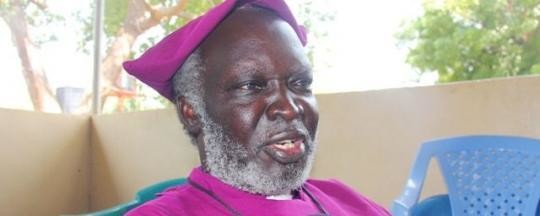South Sudan’s government has agreed to allow a proposed transitional rebel prime minister to contest for presidency in future elections, according to a participant at the Ethiopia peace talks.
Previously, President Salva Kiir signed an IGAD protocol stipulating that a rebel-elected prime minister in a transitional government would be barred from running for president after the interim period.
The government’s concession, if confirmed, may be taken as a tentative sign of progress for the peace talks being held in the lakeside town of Bahir Dar. However, the government delegation are yet to confirm the move.
The government delegation is now calling on the opposition delegation to offer its own concession, according to Bishop Enock Tombe of the Episcopal Church in Sudan and South Sudan, a member of the South Sudan religious leaders’ delegation to the talks, speaking to Radio Tamazuj.
Bishop Tombe said the talks have focused on constitutional matters, particularly on separation of powers within the national government.
He said an 11-member committee delegated for direct negotiations between the warring factions have especially discussed composition of the executive branch.
The Bishop said the SPLM-IO wants executive responsibilities divided between the president and prime minister.
“They requested that the president should be the head of state, whereas the prime minister is the chief executive and that no more powers should be given to the vice president,” he said.
However, the government rejected that proposal and insisted on continuing with the current transitional constitution of South Sudan, Tombe said.
The religious leader said that the debate has also centered on regional balance in South Sudan’s constitution.
He said the warring parties and other stakeholders broadly agree on a federal system of government, but have not agreed on which type of federalism.
The delegates are seeking constitutional expertise, with one participant, former South Sudan Justice Minister John Luk Jok of the former detainees group, even distributing copies of federal constitutions from other countries to help.
Tombe said the delegates emphasized the necessity of maintaining regional balance.
“For instance, if the country’s incumbent president Salva Kiir hail from Bahr el Ghazal and the chairman of SPLM-IO Riek Machar who is expected to be the prime minister is from Upper Nile, so the position of vice president should be given to Wani Igga who is from Equatoria region,” he explained.
Tombe stressed that a new constitutional process will require a constitutional conference and parliament, as well as a popular referendum.
No major breakthrough yet
SPLM-IO delegate Peter Adwok Nyaba cautioned that although talks have been continuing there is yet to be a major breakthrough.
The former minister of higher education says the main obstacle is the distribution of power.
He said while government considers the recent IGAD protocol as the main principle for the negotiations, the opposition sees it as a document imposed by the regional bloc without their agreement.
However, Adwok added that “we still trust the IGAD mediators and host country,” denying reports that the rebel delegation requested the relocation of the peace talks to either Kenya or Sudan.
Radio Tamazuj Photo: Bishop of the Episcopal Diocese of Rejaf Enock Tombe, 8 July 2014
To contact Radio Tamazuj with press releases, comments or information, write to radiotamazuj@gmail.com with full name and contact information.



